"In 900 Years of Time and Space, I've Never Met Anyone Who Wasn't Important Before" (Problem: Boring Lead, Riveting Supporting Cast)
I received an email the other day from a reader (who wanted to remain anonymous in this post - but we'll call her Sarah) who told me that she was having trouble getting into her protagonist, despite this being her most prominent POV.
Bildungsroman is the nature of YA above all, and that relatable trait for the protagonist is necessary. To some extent, there is a universal adolescent experience, and YA is a form of escapism that addresses or even helps the overcoming of this phase and its anxiousness and doubt with the reader. The prominent thread is the realisation of what you can do and who you are or what you like, which I think is a main factor in the popularity of love triangles - choosing the self that you want to be and all that.
Sarah went on to say:
First of all, when people email me, I always make apparent that by no means am I telling you what to do. Everyone has a different approach to characterisation, everyone has different experiences they're drawing from, everyone has their process.
Second of all, people need to stop assuming that author insertion is a cardinal sin. It isn't! Not at all! I am a BIG believer in drawing from your experiences and your emotional/psychological understanding of adolescence (and the world, for that matter) in crafting POV and characters and plot. For example, in my adolescence, I made the long journey of realisation and confidence from self-hating doormat to leader/girl on bloody fire.
That being said, there are a number of options in Sarah's situation.
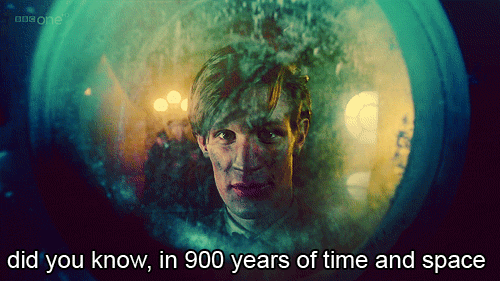
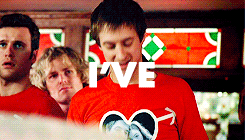
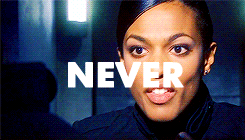
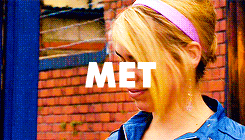
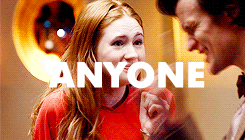
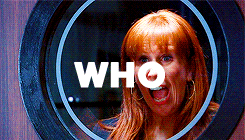
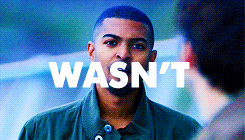

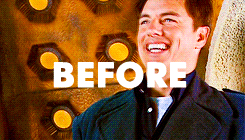
Just look at those characters, even if you're unfamiliar with the show. Look at them. They are completely different - in appearance, demeanour, backstory, plot and growth - and they are all extraordinary. Don't worry if your character doesn't fit the typical YA protagonist mould - what is important above all is that your protagonist is a character, they're a person with all the little bits that make up a person.
If all else fails, take a note from One Direction and that Little Things song.
What do you guys think? Tell me about your troublesome protagonists, how you've overcome beige characters with a whole range of bright colours around them. What kind of protagonist do you want to read? Who's the most interesting character you've encountered in YA?
She is dynamic as many Young Adult characters are, but at the beginning she's anxious and self-doubting because she's in that adolescent phase when you realise everything you know about yourself is completely wrong and you're just starting to discover who you REALLY are. There's not much that makes her like me (or am I kidding myself?) even though I've been in the same position as her. Well maybe not exactly since this is YA SF, but as far as her emotional state goes, I've been through that. But I just feel like she should've developed more by now, and she still feels like a faceless stock character.
Bildungsroman is the nature of YA above all, and that relatable trait for the protagonist is necessary. To some extent, there is a universal adolescent experience, and YA is a form of escapism that addresses or even helps the overcoming of this phase and its anxiousness and doubt with the reader. The prominent thread is the realisation of what you can do and who you are or what you like, which I think is a main factor in the popularity of love triangles - choosing the self that you want to be and all that.
Sarah went on to say:
I never intended to insert myself into the story or anything like that, don't worry! I do see similarities, but I guess I don't or can't understand her as well as I could have three years ago. I'm really flexible over what I can do next, but there's also a lot I would have to keep if I start changing her around because the whole idea of the story is her shift from who she was into who she learns she is from the events of the story. I just need a way to get into her better or make her more human.
First of all, when people email me, I always make apparent that by no means am I telling you what to do. Everyone has a different approach to characterisation, everyone has different experiences they're drawing from, everyone has their process.
Second of all, people need to stop assuming that author insertion is a cardinal sin. It isn't! Not at all! I am a BIG believer in drawing from your experiences and your emotional/psychological understanding of adolescence (and the world, for that matter) in crafting POV and characters and plot. For example, in my adolescence, I made the long journey of realisation and confidence from self-hating doormat to leader/girl on bloody fire.
That being said, there are a number of options in Sarah's situation.
- She could scrap the protagonist completely and promote a secondary character that might be similar to the protagonist or just enthralling generally.
- Likewise, she could combine said secondary character with the protagonist, or switch their personalities.
- She could give her protagonist a chance to shine - not just in terms of the story, but in terms of her own relationship with the character. Engaging in writing exercises can strengthen the author-protagonist bond, allow you to understand them better, to accustom yourself to their voice and their situation.
- Develop the protagonist. Try and determine what it is about the secondary characters that make them so much more intriguing. Are they just more well-developed? Do they have better thought-out backstories? Are they more involved than your protagonist? Are their stakes higher? Figure out what it is that separates them, and then decide what you're going to do to your protagonist.
So, does the term "ordinary teen girl" summarise your protagonist almost completely, maybe excepting one flaw or trait? You need to rework your thinking. Everyone is ordinary, and no one is ordinary.
Here's another way to think about it and it's a lesson from Doctor Who.
Here's another way to think about it and it's a lesson from Doctor Who.









Just look at those characters, even if you're unfamiliar with the show. Look at them. They are completely different - in appearance, demeanour, backstory, plot and growth - and they are all extraordinary. Don't worry if your character doesn't fit the typical YA protagonist mould - what is important above all is that your protagonist is a character, they're a person with all the little bits that make up a person.
If all else fails, take a note from One Direction and that Little Things song.
What do you guys think? Tell me about your troublesome protagonists, how you've overcome beige characters with a whole range of bright colours around them. What kind of protagonist do you want to read? Who's the most interesting character you've encountered in YA?

I think it's natural that we're going to draw at least partly on our own experiences when crafting stories, and I agree it's not a sin. It's in fact necessary. ;) And why not do it, 'cause it means you'll be writing about something you know better. It can also be a journey of self-realisation, writing your characters.
ReplyDeleteIt does happen that sometimes I'll start a story and the main character reveals him/herself to be less interesting than supporting characters!
Exactly! I've come to many a conclusion over my own problems through writing completely unrelated plots, usually set on space ships ;)
DeleteAnd I guess in some ways, sometimes we find the supporting characters in our own stories to be more interesting than we are.
" do see similarities, but I guess I don't or can't understand her as well as I could have three years ago"
ReplyDeleteThis feels like a key part of Sarah's statement to me. Now, it's always hard to know what to suggest without reading the actual book, but it seems to me that Sarah needs to tap into her own memory banks to remember what she went through at that age, and take the feelings and emotions from her experiences and filter it into her character.
I think what you're describing is a necessary step for all YA writers. It's just a matter of getting there. :)
Delete